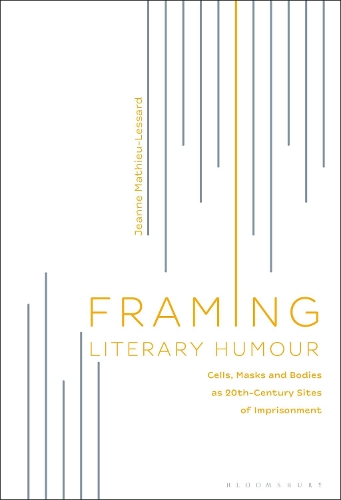
Framing Literary Humour: Cells, Masks and Bodies as 20th-Century Sites of Imprisonment
(Paperback)
Publishing Details
Framing Literary Humour: Cells, Masks and Bodies as 20th-Century Sites of Imprisonment
By (Author) Dr. Jeanne Mathieu-Lessard
Bloomsbury Publishing PLC
Bloomsbury Academic USA
29th July 2021
United States
Classifications
Tertiary Education
Non Fiction
Literary studies: c 1900 to c 2000
Psychoanalytical and Freudian psychology
809.393556
Physical Properties
Paperback
208
Width 152mm, Height 229mm
281g
Description
Contrary to what their oppressive design would lead us to believe, might structures of imprisonment actually incite humour Starting from the most obvious areas of imprisonment (war camps, prison cells) and moving to the less obvious (masks, bodies), Framing Literary Humour demonstrates how 20th-century humour in theory and in fiction cannot be fully understood without a careful look at its connection with the notion of imprisonment. Understanding imprisonment as a concrete spatial setting or a metaphorical image, Jeanne Mathieu-Lessard analyses selected works of Romain Gary, Giovannino Guareschi, Wyndham Lewis, Vladimir Nabokov and Luigi Pirandello to reconfigure confinement as an essential structural condition for the emergence of humour.
Reviews
Strong on theory, insightful in application, this study illuminates 20th-century literary humour, emphasising the vital duality of concepts of imprisonment and liberation. This is a book that emanates from deep literary understanding of its examples, chosen from several different Western cultures, and which successfully connects the lessons learned to the broader field of humour studies. A book not to be missed by scholars of humour and laughter, regardless of disciplinary background. * Jessica Milner Davis FRSN, Honorary Associate in the School of Literature, Art and Media, University of Sydney, Australia *
At once rigorous and illuminating, Mathieu-Lessard's brilliant book poses major challenges to humor theories that celebrate laughter as pure transgression or liberation. She insightfully reveals the stakes of literary humor in representations of imprisonment, spanning diverse sites of confinement from the Nazi war camp to the social mask to the mortal body. With eloquence and imagination, she grounds the very idea of humor in structures of captivity. * Maggie Hennefeld, Assistant Professor of Cultural Studies and Comparative Literature, University of Minnesota, USA *
Author Bio
Jeanne Mathieu-Lessard teaches French and Francophone literatures at the University of Montral and the University of Ottawa, Canada.
